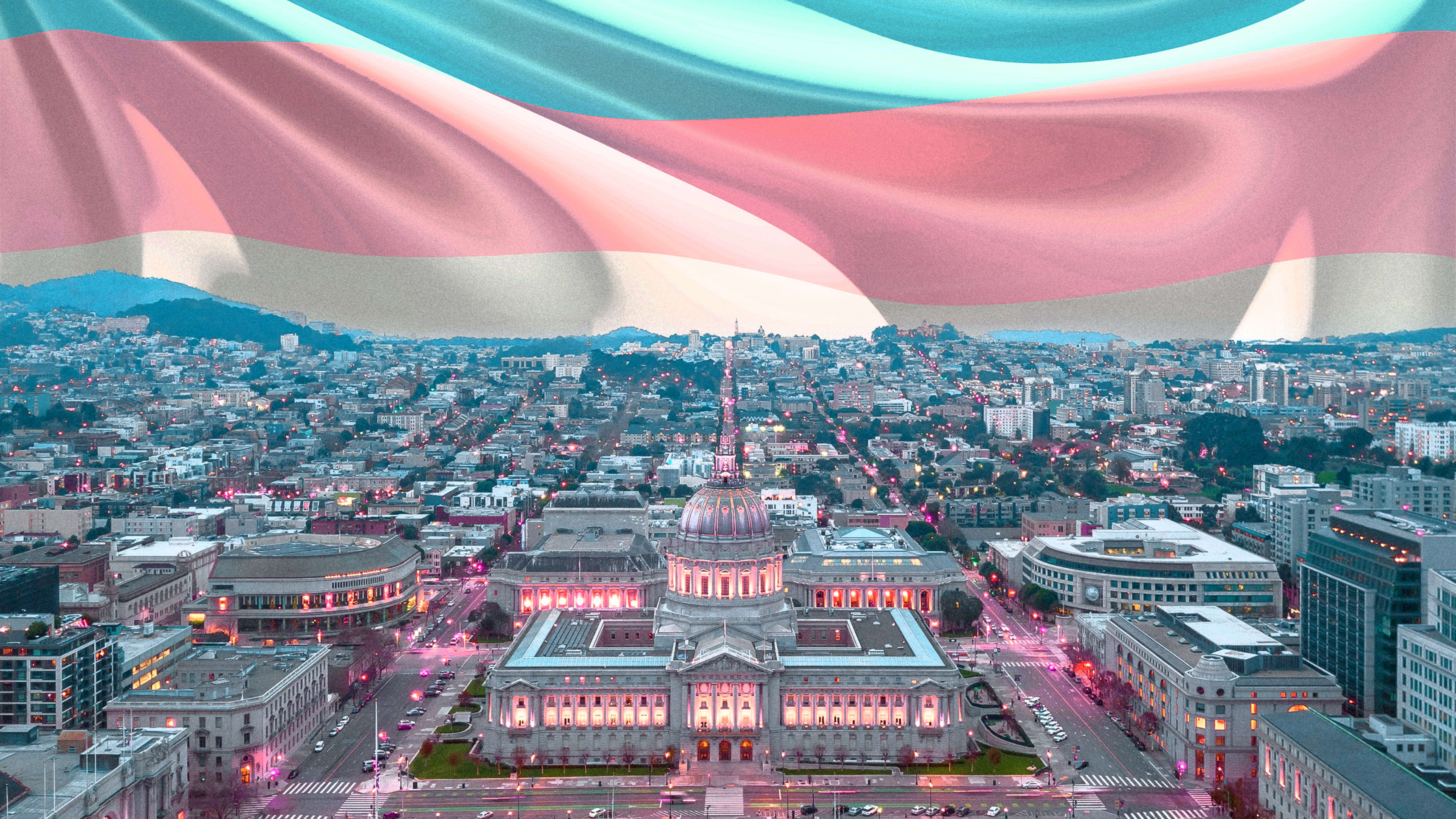Mayor London Breed of San Francisco announced last week that the city will launch a guaranteed-income pilot program specifically for transgender, nonbinary, intersex, and gender-nonconforming people. It’s an effort to drive down the alarmingly high rates of poverty, unemployment, and homelessness among those communities.
Over an 18-month period starting in January 2023, 55 low-income San Francisco residents who identify in one of those categories will receive $1,200 per month to use as they see fit. The program, called GIFT (Guaranteed Income for Transgender People), is run by the Mayor’s Office of Housing and Community Development and the Office of Transgender Initiatives—the only one of its kind in the country.
The application period runs through December 15, and is open to those who currently earn less than $600 per month. The mayor’s office is partnering with the Transgender District, an officially designated transgender cultural area in the city, comprising six blocks in the Tenderloin area of San Francisco; and Lyon-Martin, a healthcare service for the transgender community. For those selected to participate, money will be delivered via Visa debit cards, reloaded each month.
Poverty rates among transgender people are higher than those for cisgender straight people in this country. According to a 2015 report by the National Center for Transgender Equality, 29% of transgender people in the U.S. live in poverty, 30% have experienced homelessness, and 15% are unemployed—three times the national average. Economic struggles also take a toll on health; the report notes that 40% have attempted suicide at some point, a rate nine times above the U.S. average. As part of the pilot, participants will also receive mental and gender-affirming healthcare services, plus financial coaching.
“We know that our trans communities experience much higher rates of poverty and discrimination, so this program will target support to lift individuals in this community up,” Breed said in the release.
Trans people who are also members of other minority groups tend to be even more affected by poverty, according to the report. In response, the pilot will prioritize trans people who are also BIPOC, disabled, undocumented, formerly incarcerated, native Spanish speakers, or those “engaging in survival sex trades.”
The pilot is part of a broader push by the city to tackle transgender poverty; in May, Breed announced that San Francisco would be the first in the U.S. to try to end transgender homelessness by 2027. For that initiative, she will direct $6.5 million of the city budget to housing and rental subsidies, as well as a new housing site for trans youth.
“While in other parts of the country and the world, trans people are targeted by institutions and legislators,” Pau Crego, executive director of the San Francisco Office of Transgender Initiatives, said in a statement, “in San Francisco, we move toward progress and justice by investing in our most vulnerable residents.”
The guaranteed income pilot, which will have a reported budget of $2 million, is San Francisco’s third, after pilots specifically targeted to artists needing relief during the coronavirus pandemic, and to Black and Pacific Islander mothers.
Guaranteed income pilots have sprouted in cities across the U.S. Many emerged under the Mayors For Guaranteed Income coalition, founded by former mayor of Stockton Michael Tubbs, whose pilot was the first in the U.S. Since then, pilots have begun in cities from Los Angeles to Chicago. Some, like San Francisco’s, have targeted specific populations; Gainesville, Florida’s was for formerly incarcerated people, and Columbia, South Carolina’s was for Black fathers. In March, Palm Springs also approved a guaranteed income pilot for transgender people.
Proponents say this form of cash distribution is a better way to administer relief than traditional benefit programs, which can be prescriptive in the way recipients have to spend it; guaranteed income is unconditional, which allows people a sense of agency and dignity. Early data has consistently shown that people use the extra money to pay off bills and rent, and buy essentials like food—and not on vices or on slacking on work, as critics have suggested.
The ultimate goal for many of these pilots is to show they can materially alleviate economic struggle, in a hope to scale them to the federal level. But cities plan to continue rolling them out even before broad data is available. Mayor Breed will launch two more pilots for San Francisco in 2023, both of which will focus on young people.
Recognize your brand’s excellence by applying to this year’s Brands That Matter Awards before the early-rate deadline, May 3.
